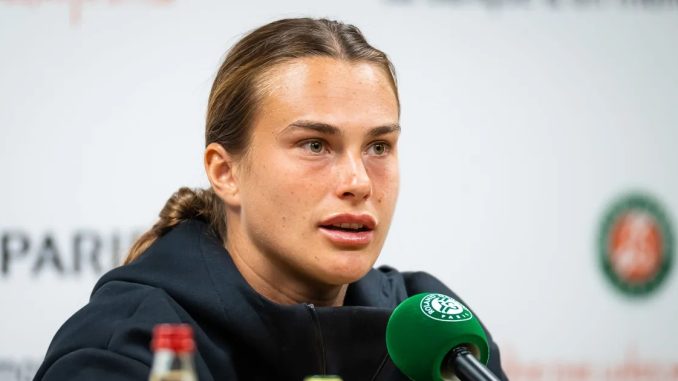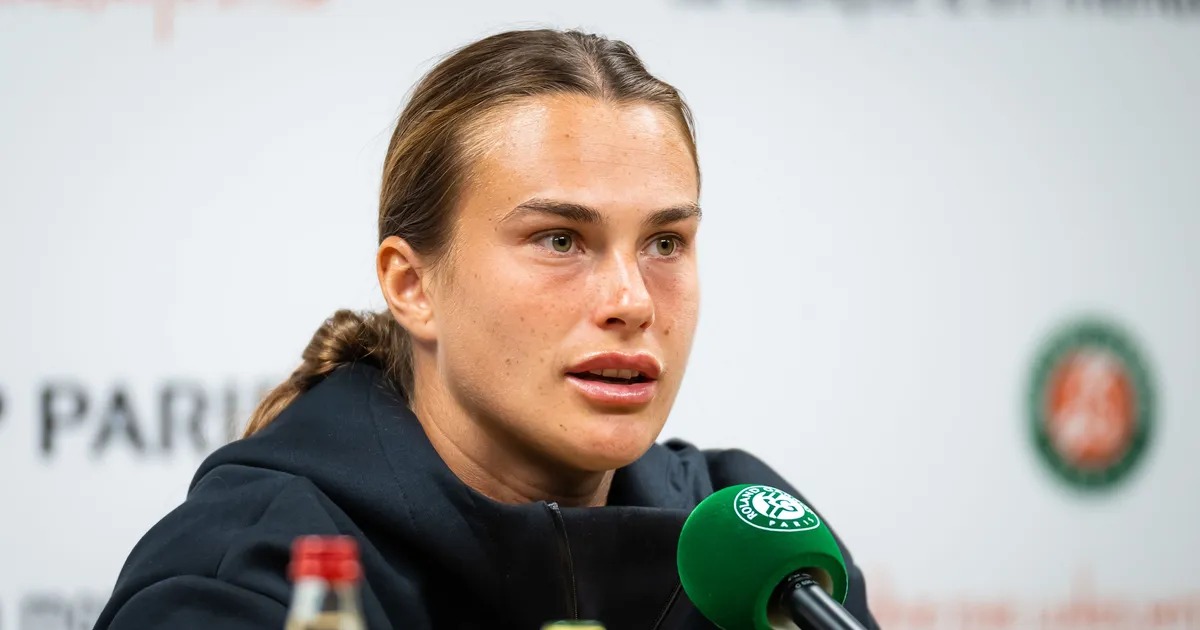
Aryna Sabalenka, one of the leading figures in women’s tennis, has consistently demonstrated her prowess on the court with powerful strokes and an aggressive playing style. As she competes against other top-tier players like Iga Swiatek and Elena Rybakina, Sabalenka has identified key deciding factors that often determine the outcome of these high-stakes matches. Understanding these factors provides insight into the dynamics of contemporary women’s tennis and the strategic adjustments necessary for success.

Aryna Sabalenka: A Force in Women’s Tennis
Aryna Sabalenka, hailing from Belarus, has carved out a prominent place in the world of tennis with her explosive power and fierce competitiveness. Known for her aggressive baseline play and formidable serve, Sabalenka has secured numerous titles and consistently ranks among the top players globally. Her matches against Iga Swiatek and Elena Rybakina are particularly noteworthy due to the high level of competition and the contrasting styles of play.
The Rivals: Iga Swiatek and Elena Rybakina
- Iga Swiatek: The Polish sensation, Swiatek, is known for her exceptional movement, tactical intelligence, and heavy topspin shots, especially on clay courts. She rose to prominence with her French Open victory in 2020 and has since been a consistent performer across surfaces.
- Elena Rybakina: Representing Kazakhstan, Rybakina possesses a powerful serve and groundstrokes, making her a formidable opponent on fast surfaces. Her game is characterized by aggressive play and the ability to dictate points from the baseline.
Identifying the Deciding Factor: Mental Toughness and Focus
Sabalenka has pointed out that while physical skills and technical proficiency are essential, the deciding factor in her matches against Swiatek and Rybakina often comes down to mental toughness and focus. Here’s a detailed look at how this factor plays a crucial role:
- Handling Pressure Situations
- Big Points and Critical Moments: The ability to maintain composure and execute under pressure is vital. Matches against Swiatek and Rybakina often feature numerous high-pressure situations where mental resilience can tip the scales. Sabalenka emphasizes the importance of staying calm and focused during crucial points, such as break points or tie-breakers.
- Consistency and Avoiding Unforced Errors
- Maintaining Consistency: Both Swiatek and Rybakina are adept at exploiting any lapse in concentration or inconsistency. Sabalenka acknowledges that reducing unforced errors and maintaining a high level of play throughout the match is critical. Mental discipline helps in sustaining performance levels and minimizing mistakes.
- Adapting to Opponent’s Tactics
- Strategic Flexibility: Matches against top players like Swiatek and Rybakina require the ability to adapt strategies mid-match. This includes recognizing and countering the opponent’s game plan, such as handling Swiatek’s topspin-heavy shots or Rybakina’s powerful serves. Mental sharpness allows Sabalenka to make necessary adjustments swiftly.
- Managing Emotions
- Emotional Control: The intensity of high-stakes matches can lead to emotional highs and lows. Sabalenka stresses the importance of managing emotions to prevent frustration or over-excitement from affecting her play. Staying emotionally balanced helps in maintaining focus and executing the game plan effectively.
Case Studies: Matches Against Swiatek and Rybakina
- Against Iga Swiatek:
- French Open Encounters: On clay, where Swiatek excels, Sabalenka has faced challenges due to Swiatek’s ability to control rallies with heavy topspin and excellent movement. Mental toughness here involves patience and strategic shot selection to counter Swiatek’s strengths.
- Key Matches: In matches where Sabalenka has managed to stay mentally focused, she has been able to pressure Swiatek and create opportunities. Her ability to stay aggressive yet controlled often dictates the match’s outcome.
- Against Elena Rybakina:
- Fast Surface Clashes: Rybakina’s powerful serve and aggressive baseline play make her a tough opponent on hard and grass courts. Sabalenka’s mental resilience is tested in managing the barrage of powerful shots and maintaining her own aggressive style without becoming erratic.
- Critical Moments: Matches often hinge on key service games and break points. Sabalenka’s success comes from maintaining composure during these critical moments and executing her game plan under pressure.
Training and Preparation
To enhance her mental toughness, Sabalenka incorporates specific training and preparation strategies:
- Mental Conditioning: Working with sports psychologists and mental coaches to develop techniques for maintaining focus and handling pressure.
- Simulation Drills: Practicing under simulated match conditions to build experience in managing high-pressure scenarios.
- Routine and Rituals: Establishing pre-match routines and rituals to create a sense of stability and control.
Conclusion
Aryna Sabalenka’s identification of mental toughness and focus as the deciding factors in her matches against top rivals like Iga Swiatek and Elena Rybakina underscores the importance of the psychological aspect in elite tennis. While physical skills and technical prowess are essential, the ability to remain mentally resilient and focused during critical moments often determines the outcome of these high-stakes encounters. Sabalenka’s emphasis on mental preparation reflects a holistic approach to her game, aiming to harness both her physical capabilities and psychological strengths to achieve success on the court.
Leave a Reply